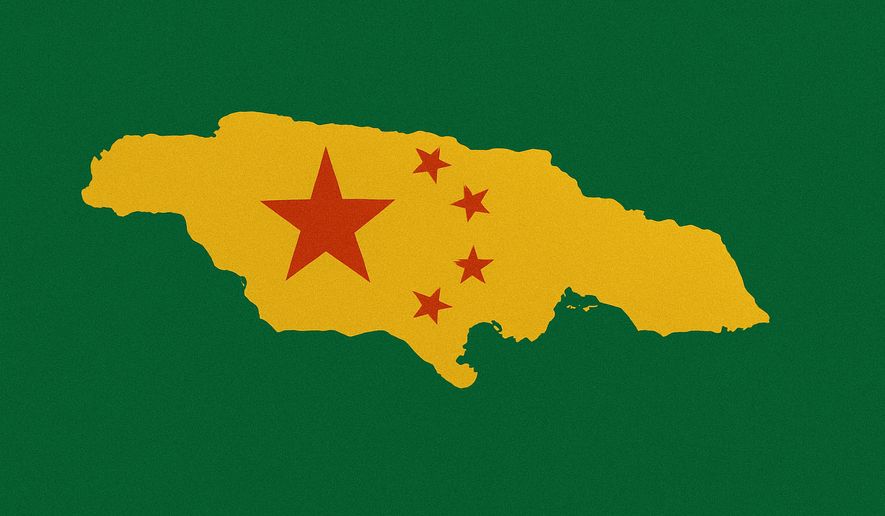OPINION:
The Americas have long been strategically important to the United States. However, no president in decades has done enough to combat the rise in foreign manufacturing investment in the Southern Hemisphere and the Caribbean — that is, until the Trump administration.
This creeping threat that must be addressed by the administration (and, more specifically, Secretary of State Marco Rubio) using the bully pulpit before it becomes a cascading issue. The threat lies in foreign investment designed not to strengthen regional economies or raise living standards but rather to undercut Western business, exploit weak governance and quietly extend Beijing’s influence in our backyard.
Washington has begun to recognize this threat and the Trump administration has taken steps to counter Chinese overreach globally, but more must be done. America must insist on clear rules of the road for investment in our hemisphere.
One example of this concern is in Jamaica. American aluminum companies have long operated on the island. Through Jamalco, its joint venture with Clarendon Alumina Production Ltd., U.S.-based Century Aluminum has provided stable investment, jobs in Jamaica and vital alumina imports to the U.S. market. Similarly, Windalco, an alumina supplier in a different area of the island, supplies alumina for manufacturing and alumina trihydrate, used in critical U.S. water purification processes.
Century Aluminum’s acquisition of a 55% stake in Jamalco in April 2023 was designed to guarantee a reliable, high-quality source of alumina and alumina byproducts from a trusted, regional partner operating under a stable regulatory framework. As a result, Jamaica has emerged as a key supplier to American markets: In Q1 2025 alone, the U.S. imported 66,000 tons of alumina from Jamaica (a staggering 238% year-over-year increase), underscoring Jamaica’s growing importance to American consumer and industrial markets.
However, the integrity of these operations is under threat. A Chinese-owned toll road, the T3 Highway, was constructed with poor engineering and cheap Chinese labor. This shortcut project has disrupted Jamaica’s natural drainage system and dried up tributaries that once supported industrial water management and destabilized the land.
The result: flooding risks, potential environmental damage and a fragile infrastructure that could devastate Jamaica’s aluminum corridor, which supplies American consumers. The China Harbour Engineering Co. has admitted responsibility but failed to rectify the situation. Its poor or nonexistent drainage systems present a systemic problem that risks turning this into a geopolitical quagmire.
These risks aren’t hypothetical. Runoff from the Windalco plant could face heightened scrutiny because of environmental disruptions linked to the T3 Highway’s faulty design. Further mismanagement could trigger fierce regulatory backlashes that hamper legitimate operators such as Jamalco.
What’s at stake here is not just needless environmental damage but also the security of U.S. supply chains for critical materials. If alumina production falters, American manufacturers face shortages and consumers will see higher prices.
The strategic stability of Jamalco and other exporters to the U.S. is jeopardized when Chinese partners in the same ecosystem flout regulatory standards. That inconsistency poses a real threat to U.S. downstream consumers, and it’s high time the Trump administration made it clear: America will defend its economic interests and ensure all foreign investors play by the same rules of transparency, or risk losing access to those markets.
Jamaica is not an isolated case. Across the Caribbean and Latin America, Chinese state-backed companies are buying up ports, roads, mines and energy assets. What often follows are cases of the use of poor-quality Chinese labor to the detriment of local jobs, cutting corners, ignoring environmental safeguards and leaving countries stuck with shoddy infrastructure.
When Chinese companies skirt rules that U.S. firms follow, they tilt the playing field. Western operators are held to high standards of transparency, labor and environmental responsibility. China, on the other hand, uses its economic muscle to bypass accountability.
If we allow shoddy, foreign-built infrastructure and unchecked investment to undermine legitimate American enterprise, we put not only local economies at risk but also U.S. jobs and consumers. The Americas should be a zone of partnership, prosperity and fair play, not a testing ground for Beijing’s ambitions.
President Trump already kicked Chinese actors involved in the Panama Canal to the curb. He must step up once again and make sure China knows America will protect its regional partners and its critical mineral interests.
• Steve Bucci is a visiting fellow at The Heritage Foundation.




Please read our comment policy before commenting.